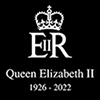Administering a loved one’s estate after they have passed away can be difficult, but at Rotherham Taylor we are here to support you every step of the way.
Probate is the process of sorting out someone’s estate, their property, money and possessions after they’ve died.
At this stressful and emotional time, some families find it easier to appoint a professional to assist them with handling probate and other duties of an executor.
Rotherham Taylor are one of a small number of accountancy practices in the UK to be licensed to provide probate services by the Institute of Chartered Accountants in England and Wales (ICAEW).
We can:
- Obtain Grant of Probate
- Help you identify the assets and liabilities of the estate
- Access assets from bank accounts, property and share portfolios
- Consider any Deed of Variation opportunities
- Distribute the assets of the estate according to the terms of the Will
- Prepare and submit any outstanding Personal Tax Returns up to the date of death
- Prepare estate tax returns and settle outstanding tax liabilities of the estate
- Prepare the final estate accounts
- Provide advice on tax planning opportunities for the estate and/or for beneficiaries
- Provide ongoing inheritance tax and succession planning advice
We only charge for the work that we do, we do not charge a percentage fee based on the value of the estate. Our charges are based on hourly rates which are available on request and a fee guideline is always issued as part of our engagement procedures.
As part of our engagement procedures, we will also endeavour to draft a timescale for the services to be provided.
Our existing detailed knowledge of a client’s financial affairs means we can act quickly and effectively on probate matters with consequent cost benefits.
Probate – a step by step guide
1. Valuing your estate
The assets of an estate typically include property, savings and possessions. We will prepare a valuation – rather like a balance sheet, taking into account any debts that need to be paid. Any gifts made within seven years of the person’s death must also be added to the value of the Estate.
2. Inheritance Tax
Depending on who is set to inherit the assets and the amounts involved, Inheritance Tax may be liable. If this is the case, we will calculate the amount payable and ensure that the correct forms and payment are sent to HMRC on time.
3. Grant of probate or administration
If a valid Will is in place, the executors will apply for a grant of probate. This allows them to distribute the assets according to the wishes of the deceased.
Where there is no valid Will (the person has died ‘intestate’) a Grant of Administration must be applied for by the next of kin.
Our probate experts will be able to provide you with advice and guide you through either process.
4. Liquidating the estate
This is the official term for turning assets such as property and possessions into cash which can then be distributed to named beneficiaries or the next of kin.
It also involves ensuring that all debts have been paid, including any Income Tax and Capital Gains Tax owed to HMRC.
If an executor is handling assets due to the estate, for example money from the sale of a property, it is usual to set up an executor’s bank account for the purpose.
5. Distribution of the estate’s assets
Once all debts have been paid and assets have been liquidated, a final net amount can be calculated.
If the terms of the Will state that the estate should be shared amongst beneficiaries as a percentage of the estate’s net value, we can calculate the amount due to each beneficiary.
If there is no Will and the rules of intestacy apply, we can ensure that the estate is correctly distributed according to the regulations.






